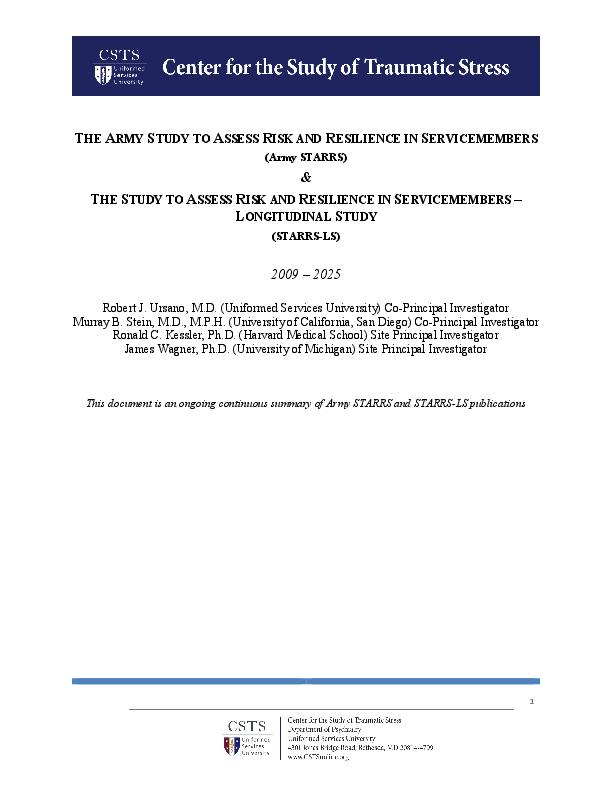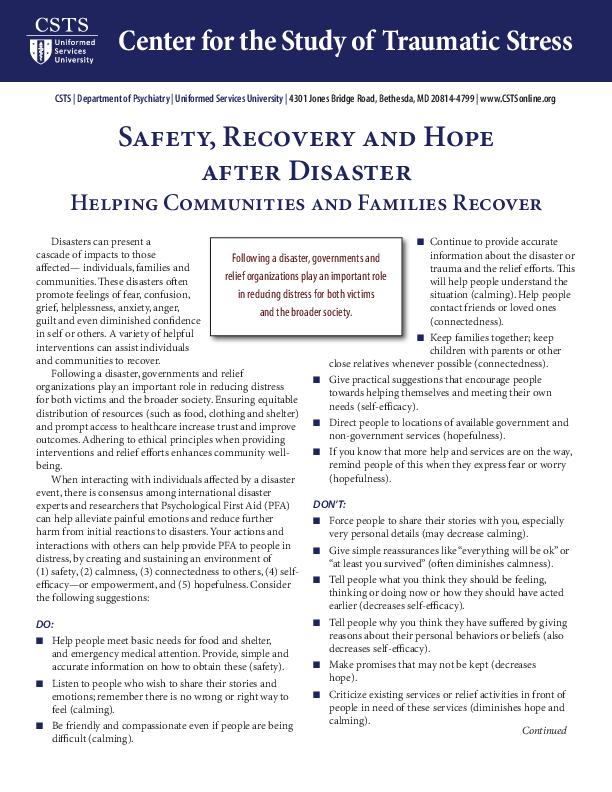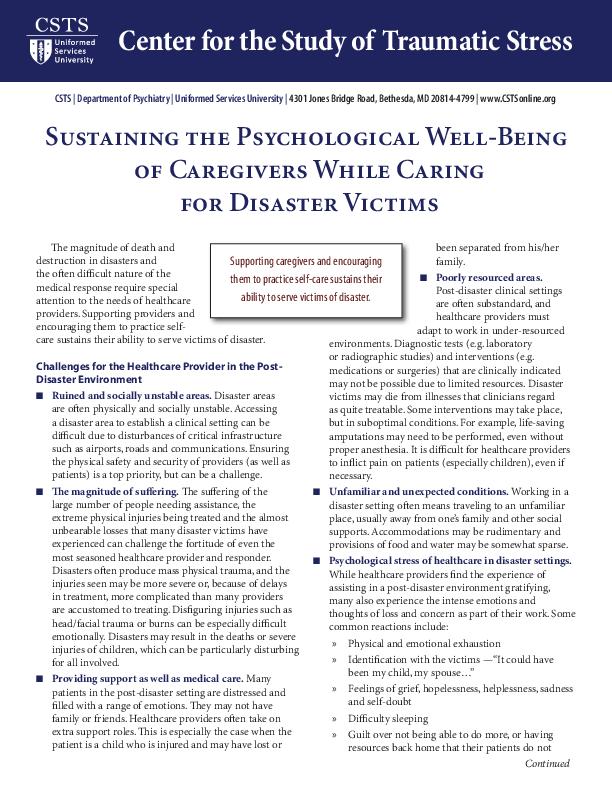|
|
Director’s MessageOur Center advances trauma-informed care through cutting edge research, education and training, and resources that draw upon our expertise in military and disaster psychiatry. . . . [more] |
DISASTER EVENTS
ISRAEL-HAMAS WAR MENTAL HEALTH RESOURCES
WAR IN UKRAINE MENTAL HEALTH RESOURCES - 4 videos added Nov 2023
Fact Sheets
 |
|
Publications
 |
|
Education and Training
 |
|
Research
 |
What’s New?
Army STARRS: Volume 8 Issue 1, Updated January 29, 2024
This document is an ongoing continuous summary of Army STARRS and STARRS-LS publications. STARRS/STARRS LS (2009 - present) is the largest and most comprehensive research project of mental health among U.S. Army Soldiers ever conducted. The project was designed to examine a broad range of risk and resilience (protective) factors across a complex set of outcomes including suicidal behaviors and associated mental health issues. Army STARRS scientists created a series of large and extensive databases with the potential to achieve groundbreaking results. These databases allow scientists to investigate a diverse combination of factors from demographic, psychological, biological, neurological, behavioral, and social domains with the goal of generating actionable findings for the Army. The project was designed using an adaptive approach which means it evolved as new information became available over the course of the project. The research team shared preliminary findings, as they became available, with senior Army leadership so the Army could apply them to its ongoing health promotion, risk reduction, and suicide prevention efforts. The work is continuing under the STARRS Longitudinal Study (STARRS-LS) which runs from 2015 to 2025.
SOUTHERN UNITED STATES TORNADOES: MENTAL HEALTH RESOURCES TO SUPPORT COMMUNITY RECOVERY
Catastrophic disasters, such as late-season severe weather and tornado outbreaks that affected portions of the Southern United States across the states of Arkansas, Missouri, Illinois, Tennessee, and Kentucky, cause suffering and death, as well as extreme disruption and distress for communities. Please click HERE for brief and easy-to-read education fact sheets with recommended actions to protect the mental health and well-being of individuals and communities impacted by the tornadoes.
Grief and Prolonged Grief Disorder Book
Dr. Stephen Cozza, Associate Director for the Child and Family Program for CSTS, Professor for Departments of Psychiatry and Pediatrics at USU, was among the many experts at USU who helped lead the development of a new book, Grief and Prolonged Grief Disorder, to help clinicians better understand Prolonged Grief Disorder, which is much longer-lasting and all-consuming compared to typical bereavement.
click HERE for more information.
MAINE COMMUNITY SHOOTINGS RESOURCES TO SUPPORT COMMUNITY RECOVERY
Acts of mass violence, such as the shootings at the bar and bowling alley in Lewiston, Maine, cause extreme disruption within communities. When these events occur in locations people typically go to relax and let down their guard, they can be particularly distressing and undermine a fundamental sense of safety. The subsequent law enforcement search for perpetrator and resulting community lockdown prolong distress and create ongoing disruption and uncertainty. Victims, family, friends, first responders and emergency personnel, as well as community leaders are among those affected. Ongoing and graphic media exposure broaden the impacted disaster “community” far beyond the geographic region of the event.
Please click HERE for resources
ISRAEL-HAMAS WAR MENTAL HEALTH RESOURCES
Exposure to acts of terrorism and war causes a wide range of harmful mental health effects. Those working with people directly impacted by the Israel-Hamas war or affected communities around the world can protect mental health by using the following evidence-based actions and other resources HERE











